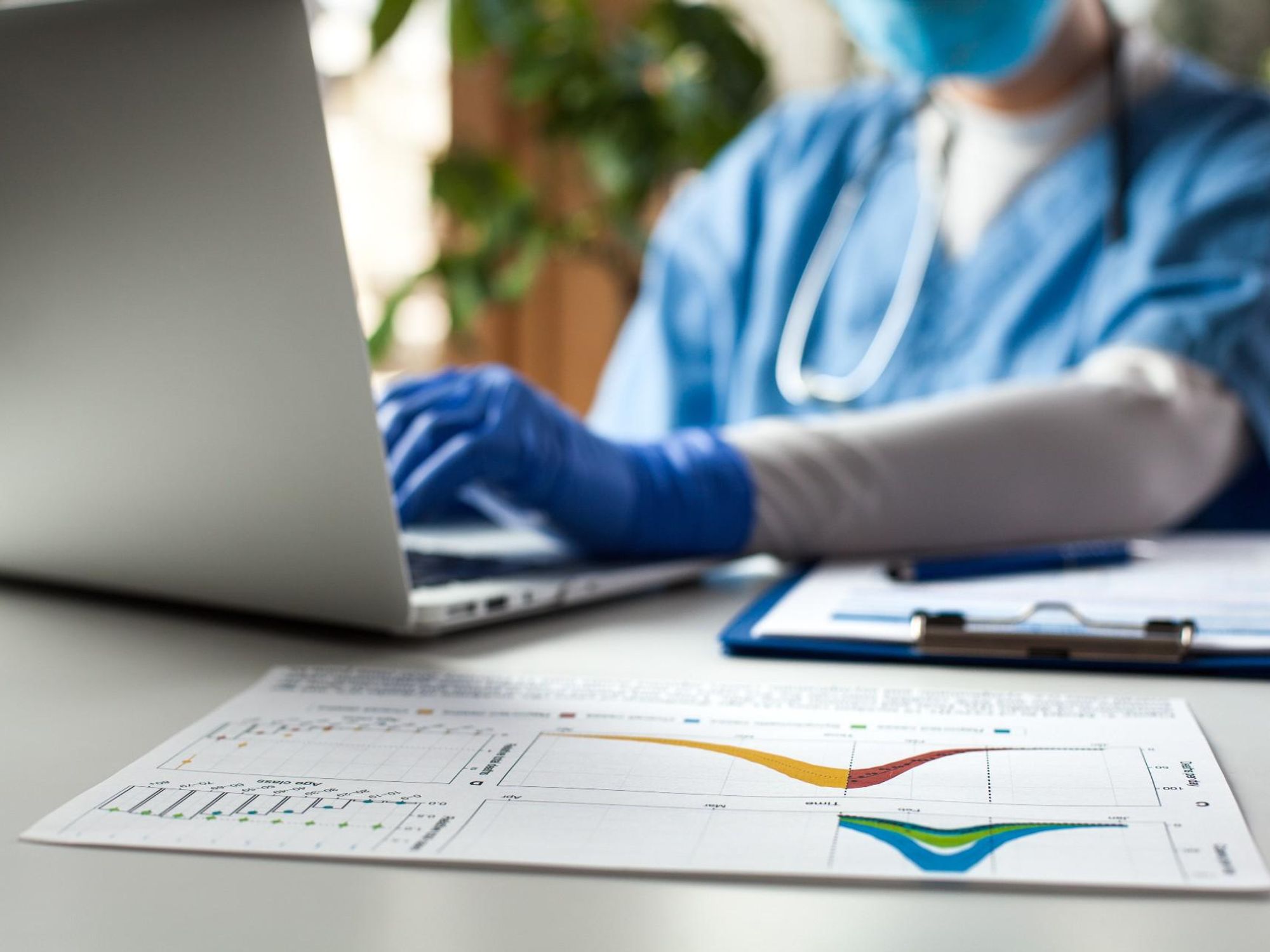The Brainchild of an ER Doctor, Crossover Health Focuses on Data and Preventative Care
Keerthi Vedantam is a bioscience reporter at dot.LA. She cut her teeth covering everything from cloud computing to 5G in San Francisco and Seattle. Before she covered tech, Keerthi reported on tribal lands and congressional policy in Washington, D.C. Connect with her on Twitter, Clubhouse (@keerthivedantam) or Signal at 408-470-0776.

Once an obscure health care company, Crossover Health has netted some of the biggest names in technology. And its new venture with Amazon is about to make it even bigger.
The San Clemente-based startup netted $168 million in Series D funding just this week, and its burgeoning success speaks to a larger trend that could change how U.S. health insurance is done.
Once a small health care provider co-founded by two colleagues in Aliso Viejo, Crossover Health has grown into one of the biggest names in the industry and is expected to rake in $165 million in revenue by year's end.
Facebook, LinkedIn and Comcast are among its clients and its providers now oversee 400,000 patients across the country. But their most well-known partnership is with Amazon, which is using the company to power their 17 in-person clinics, including one near its fulfillment center in San Bernardino.
Crossover promises to lower the cost of health care for employers by providing primary and preventive health care at a pre-fixed rate. In addition, it says it can save companies 15% on average on their health care costs by emphasizing preventive care.
Co-founder Scott Shreeve said he started to think about this idea after seeing a rotating door of patients with various ailments in the emergency room.
"I would do my best to take care of my 30 or so patients every day that came in and try to address their issues," Shreeve said. "And then the next day there'd be 30 more, and then 30 more. It just felt like, 'what can I do to get ahead of this, to get upstream of these problems?'"
Crossover's Series D round was led by Deerfield Management Company. The goal is to help the company grow faster.
Founded in 2010 by Shreeve, an emergency medicine doctor, and health insurance expert Nate Murray, the company runs 48 health clinics that are based employer sites or close by. The company, like Forward and One Medical, uses comprehensive analytics platforms to track and enable patient health care.
Crossover nabbed its first big client, Apple, in 2011 as the tech giant was developing on-site clinics.
Its success can be attributed to the growing number of self-insured companies. Rather than paying money to an insurance company, a business will take on the risk of paying health care providers itself. They often still use insurance to handle the administrative tasks, but use primary health clinics like Crossover Health to handle the everyday needs of their employees.
Crossover Health announced a partnership with Amazon in 2020 to develop a slew of health clinics scattered across the country meant for Amazon workers who might work odd hours. It has opened up 17 clinics in five states, including the San Bernardino area. The clinics operate from 7 a.m. to 11 p.m. and offer everything from primary care to behavioral health services for workers and their families.
"If you come in and you've got a back injury that's that's causing depression, we're not going to just treat your back injury and punch you out of here," Shreeve said. "We have a physical therapist and a mental health therapist as part of a similar team and they work to provide that comprehensive care."
Crossover Health may not be Amazon's only provider. Wyoming-based Care Medical, which contracts with Amazon to offer Washington employees in-person and virtual care, filed paperwork to do business in other states, according to STAT News. It is unclear if this is a joint venture with Amazon.
A New Model for Tech Companies
Many tech companies have adopted on-site or near-site clinics in order to proactively lower health insurance costs. If employees have easy access to quality primary and preventative care that can manage or stave off chronic conditions, the employer pays less on reactive care for high-risk issues.
The self-insured model has historically worked best for large businesses who can offer hundreds of employees to, and afford to broker deals with, health care providers. Eighty-four percent of large companies were self-insured in 2020. Disney and Walmart are both self-insured, and Walmart flies its employees over state lines to see specialists in its network.
"If you're a little company and you have one person that works for you that has a really bad accident, that can blow your budget for five years. Then you have to buy reinsurance to protect you against that," Glenn Melnick, a professor at the USC Price School of Public Policy. "There's no savings there... whereas if you're a big company, administrative costs are spread out among a lot of employees."
In addition to Crossover Health's on-premise and virtual clinics staffed by doctors, therapists and other care providers, the company offers fitness classes and resources on grocery shopping and other extrinsic factors that play a role in determining one's health.
"They have a real incentive to keep all their members healthy," said Eunjoo Pacifici, a professor at the USC School of Pharmacy. "Their expenses are kind of fixed for paying for doctors and infrastructure. If they can keep the cost of care down, they can keep more of their profits."
It also has a network of specialists and can schedule appointments with them on behalf of a patient. Specialists are not covered under Crossover Health. The company uses an in-house data analytics technology platform that allows them to collect an employee's medical history with their permission, create a baseline of health, track 40 metrics of health, identify potential risk factors and proactively encourage employees to get treated.
The platform is a portal by which patients can securely contact health care experts and access their health records. In turn, Crossover Health recommends flu shots, physicals and other services based on the employee's health profile.
While this model is shown to be effective in managing care, according to Melnick, not all preventative health care is cost effective. Some chronic diseases — like diabetes, cancer and heart disease — require years of preventative health care to slow the effects, and those preventative treatments may not outweigh the cost of treating the disease.
"It improves quality of life," Melnick said. "There are other reasons to do it, but for other things it is not economically justified."
Crossover Health says while chronic conditions are more expensive to treat, they're balanced out by the employees who require very little care.
Keerthi Vedantam is a bioscience reporter at dot.LA. She cut her teeth covering everything from cloud computing to 5G in San Francisco and Seattle. Before she covered tech, Keerthi reported on tribal lands and congressional policy in Washington, D.C. Connect with her on Twitter, Clubhouse (@keerthivedantam) or Signal at 408-470-0776.






 Image Source: Skyryse
Image Source: Skyryse